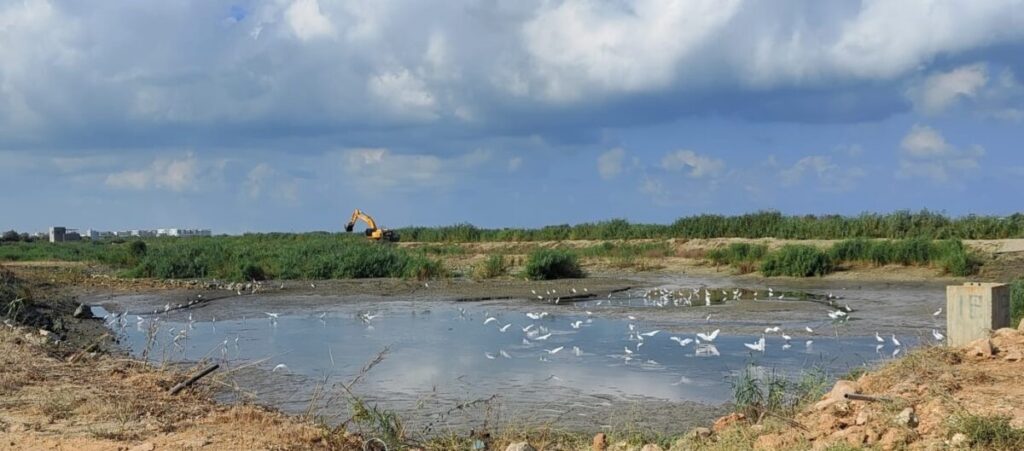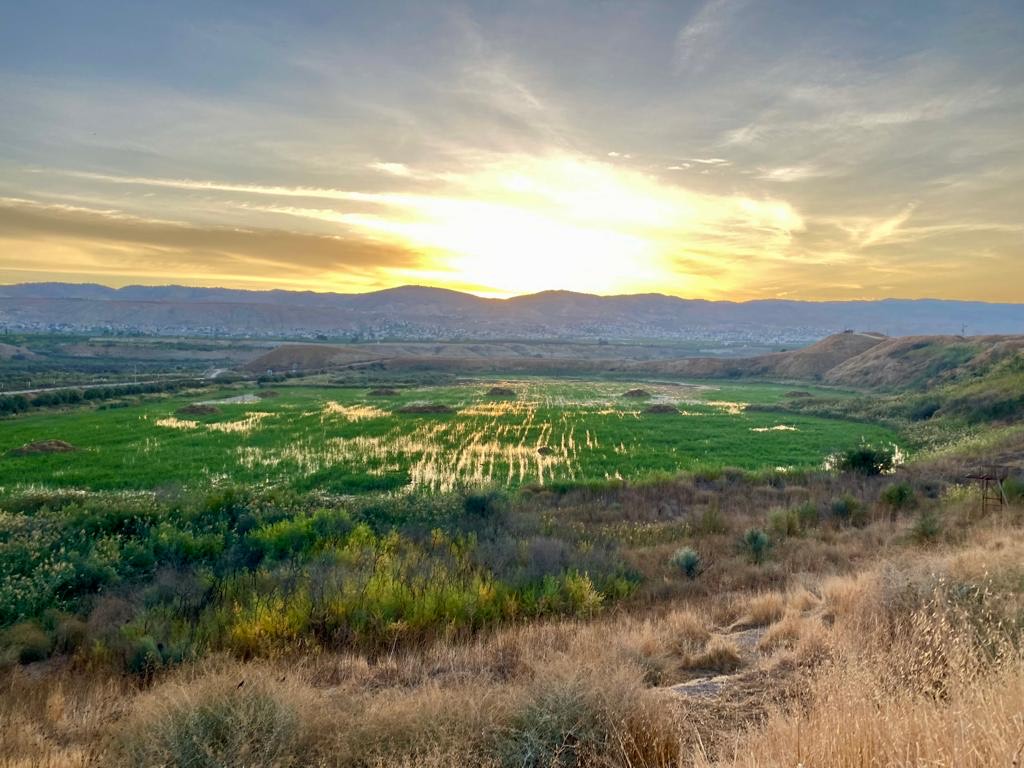Wetlands, with their plants and insects, are essential for the migration of birds flying over Israel towards Asia. However, drought has sometimes altered them. The Start-Up Nature project of the Society for the Protection of Nature in Israel (SPNI), established in 2021, therefore converts former fish ponds into wetlands. It provides new safe nesting sites for birds during their journey.
Start-Up Nature was developed by Dan Alon, currently the CEO of the SPNI. With a long-term vision of creating 12,000 acres, equivalent to restoring 25% of the 50,000 acres that adorned Israel at the beginning of the 20th century. The teams leased agricultural land directly from three kibbutzim (villages) to develop them, maintain the migratory route, and create new habitats. Starting in 2020, SPNI planned, drained, and redesigned the topography of fishponds and slowly filled several basins of different depths.
Since the drying up of 95% of Israel's natural wetlands in the first half of the 20th century, many migratory birds, especially waterbirds, have been benefiting from fish farms to refuel before or after their migration across the desert belt of North Africa and the Arabian Peninsula.
Wetlands in three kibbutzim
Start-Up Nature has developed wetlands in three kibbutzim and plans to expand to different areas of the country. At Kfar Ruppin kibbutz in northern Israel, a fish farm has been converted into a wetland. Since 2020, over 200 bird species have been spotted there, notably by researchers and ornithologists.
At Kibbutz Ma’agan Michael, located on the Mediterranean coast between Haifa and Hadera, new wetlands have also emerged. A total of 13 million dollars would be needed to return the fish farms to nature and maintain them until 2050. Start-Up Nature is also raising funds to implement six more rewilding projects in the northern part of the country.

"We estimated that these additional projects would require $4.7 million for the initial setup and $29.4 million to maintain them until 2050," said Jay Shofet, Director of Partnerships and Development at SPNI. "So far, we have restored three different wetland areas, but our goal is to create 10, 20, or even more in order to restore 30% of the country's wetlands. We have observed the global impact of these stopover points for birds worldwide and their crucial role in species protection," he added.
Recently, Start-UP Nature finalized an agreement with Kibbutz Dan (north) to rewild nearly one square kilometer of former fish farms. These wetlands are located in a crucial ecological corridor and are bordered by four tributaries of the Jordan River.
These sanctuaries, equipped with visitor centers and accessible trails, allow more than 150,000 local and international visitors each year to encounter 300 species of birds, including storks, cranes, pelicans, and eagles.
"We have a mission to make nature accessible to visitors from the country, but also from around the world, through the bird watching points we have created. People are impressed and amazed by the beauty of nature and become aware of the importance of the project. We also organize school visits to raise awareness among the younger generation about the importance of protecting nature, especially birds," says Jay Shofet.
Without this initiative, the consequences would be devastating, as the birds would not have enough water and food to complete their journey.
An exportable model
Start-Up Nature works in cooperation with several countries around the Mediterranean, including Cyprus and Jordan. The program plans to further expand its influence to other countries around the globe. "We truly want to show that this model is exportable on an international scale. We have proven the relevance of our actions, especially for dry and desert areas with high population density. We firmly believe that several countries around the world should follow in our footsteps to protect the planet," stated Jay Shofet.
In partnership with the Israel Nature and Parks Authority, a joint budget of $132,500 has been allocated to Start-Up Nature to map and study high-potential wetland restoration areas. This mapping will take place over the next two years in the Carmel Coast, Hula Valleys, Akko, and Beit She'an, as well as in the Harod, Jezreel, Hadera, and Alexander basins, which have been identified as critical areas to support migratory movement.

